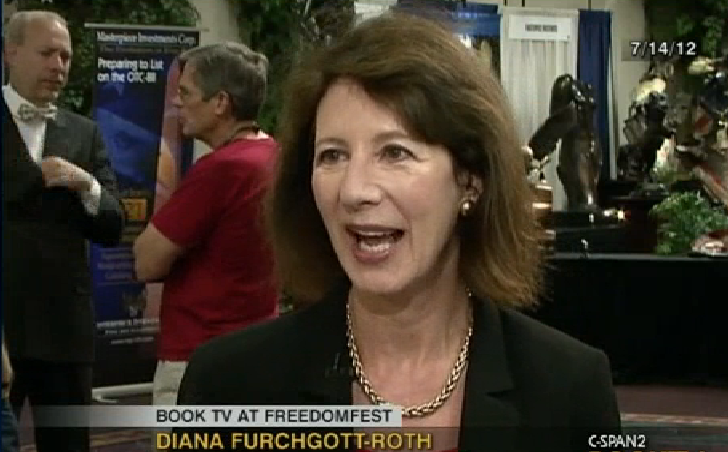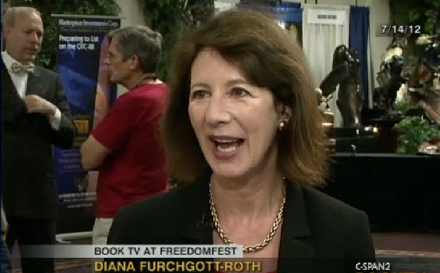Make your tax-deductible gift by December 31—every gift matched, up to $150,000!
In this moment, the future of our rights, our bodily autonomy, our freedom feels uncertain. What we do next will make a difference for decades to come.
Make your tax-deductible gift by December 31—every gift matched, up to $150,000!
In this moment, the future of our rights, our bodily autonomy, our freedom feels uncertain. What we do next will make a difference for decades to come.
Double your impact in the fight to defend and restore abortion rights and access, preserve access to affordable child care, secure equality in the workplace and in schools, and so much more. Make your matched year-end gift right now.

 Yesterday, the Senate Committee on Commerce, Science, and Transportation held its confirmation hearing for Diana Furchtgott-Roth as Assistant Secretary for Research and Technology at the U.S. Department of Transportation. We’ve already expressed serious concern about her nomination—for good reason. Furchtgott-Roth has a long track record of distorting data to argue against legal protections for women’s rights – whether she’s denying the wage gap exists or implying that workplace sexual harassment is over-reported.
Yesterday, the Senate Committee on Commerce, Science, and Transportation held its confirmation hearing for Diana Furchtgott-Roth as Assistant Secretary for Research and Technology at the U.S. Department of Transportation. We’ve already expressed serious concern about her nomination—for good reason. Furchtgott-Roth has a long track record of distorting data to argue against legal protections for women’s rights – whether she’s denying the wage gap exists or implying that workplace sexual harassment is over-reported.
Furchtgott-Roth was nominated to a research position that requires a public servant who is ready to conduct principled, rigorous analysis. Instead, it seems like we’re in danger of just having to hear things like this instead:
To spell this out—according to Furchtgott-Roth’s worldview, the main issue with sexual harassment in the workplace isn’t that it’s pervasive, underreported, and a situation where it’s difficult for survivors to come forward. No – her big thing is that the strides women have made in the workplace to have safer offices, and enforcement of sexual harassment law, have led to “employer overreaction.”
Yet men can wait. Today the Senate Committee on Health, Education, Labor and Pensions holds a hearing on the misnamed Paycheck Fairness Act, a bill designed to raised (sic) women’s wages.” (Source)
Furchtgott-Roth seems to enjoy arguments like this quite a bit—why and how could we possibly care about two things at once? Each time, quotes like these of hers are excuses to justify why she doesn’t want stronger legislation to address the wage gap and issues of pay equity. Apparently, ensuring that women are paid equally is a distraction.
Of course educational choices, jobs, and hours worked all affect pay, and can some instances affect gender wage gap numbers. However, Furchtgott-Roth consistently does something else with these non-controversial observations. She uses them to argue that because different factors lead to women typically being paid less than men, the wage gap is a myth. Every time she runs through this argument (which she sure does a lot), she either neglects to mention or dismisses that there are apples-to-apples comparisons of wage data (see our fact sheet!), and these show that even when you control for educational choices, jobs, and hours worked, there still is a significant wage gap. In fact, a study by labor economists Francine Blau and Lawrence Kahn found that when you look at all of these factors combined, 38 percent of the wage gap still remained unexplained. Not to mention that the fact that women are over-represented in low-wage jobs and under-represented in high-wage jobs is itself a problem that reflects discrimination in the workplace. Throughout her career, Furchtgott-Roth has twisted statistics to bolster her false claim that the gender wage gap is a myth, and she’s failed to seriously engage with scholarly consensus to the contrary.
Furchtgott-Roth’s record shows she prefers espousing political ideology to engaging with serious analytical work. For someone who would be filling a government research position at a high level, this is deeply worrisome.